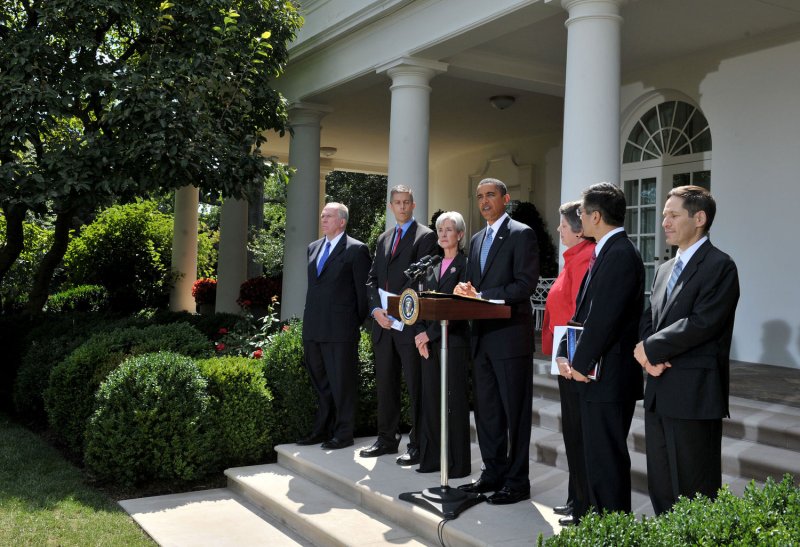WASHINGTON, Sept. 1 (UPI) -- U.S. President Obama repeated his goal of preparedness, not panic, if an expected second wave of H1N1 flu moves through the United States this fall.
"As I said when we saw the first cases of this virus back in the spring, I don't want anybody to be alarmed, but I do want everybody to be prepared," Obama said after a meeting on the 2009 H1N1 national preparedness and response. "We know that we usually get a second, larger wave of these flu viruses in the fall, and so response plans have been put in place across all levels of government."















